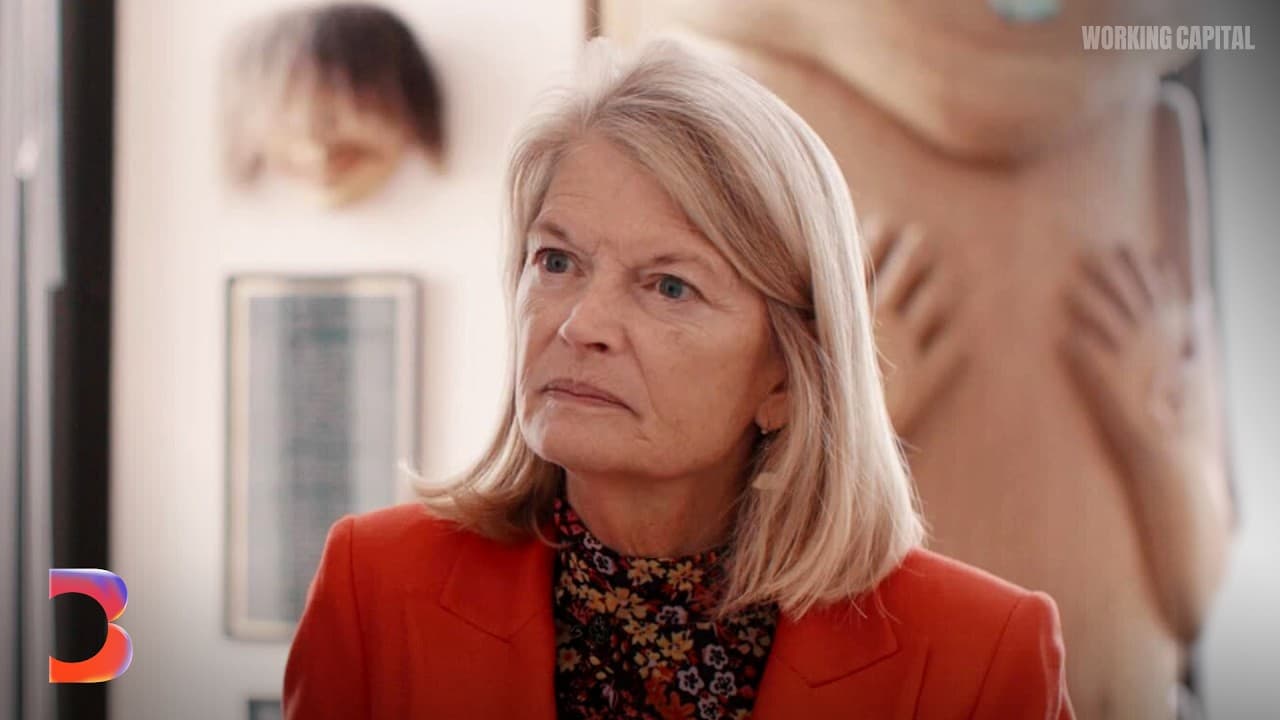Lisa Murkowski Preaches Compromise to the Polarized | Working Capital
14 Aug 2024 (over 1 year ago)

Political Polarization and the Tea Party
- The speaker discusses the increasing polarization in the United States, noting that people are moving to areas with more politically homogeneous populations.
- The speaker connects the rise of the Tea Party in 2010 to the increasing polarization of the Republican Party.
- The speaker notes that the Tea Party's influence waned for a time but resurfaced with the rise of Donald Trump.
- The speaker expresses surprise that Donald Trump was elected president, given his vulgar comments and behavior.
- The speaker questions whether the American public is accepting flawed individuals as leaders.
- The speaker expresses concern that Donald Trump's narcissism and putting himself above the country are qualities that the American people are accepting.
Senator Lisa Murkowski's Political Journey
- The speaker, Senator Lisa Murkowski, describes her own political journey, highlighting her 2010 write-in campaign after losing the Republican primary to a Tea Party candidate.
- Senator Murkowski emphasizes her independence from the Republican party, stating that she feels freed up to put party politics aside.
- She expresses a desire for more colleagues who are open to compromise and understanding both sides of issues.
- Senator Murkowski believes that representing the most extreme view of one's side is not always good politics.
Murkowski's Perspective on Abortion
- She shares her perspective on abortion, stating that she believes women should have the right to control their own healthcare decisions but also supports limitations on late-term abortions.
- The speaker discusses the abortion debate and how it is often polarized by extreme views on both sides.
- The speaker believes that most people hold moderate views on abortion, but the debate is dominated by those who hold extreme views.
Challenges of Representing Alaska
- Lisa Murkowski, a senator from Alaska, highlights the unique challenges of her state, particularly in terms of infrastructure and energy.
- Alaska's vast geography and remote communities make transportation and access to essential goods and services extremely difficult.
- The high cost of living in Alaska, especially in rural areas, is exacerbated by the lack of road infrastructure, leading to reliance on expensive air and sea transportation.
- The senator emphasizes the importance of the bipartisan infrastructure bill, which she believes will significantly benefit rural America, including Alaska.
- Murkowski highlights the need for funding for essential ferry services, which are crucial for transportation, medical access, and daily life in many Alaskan communities.
- She describes the challenges faced by some Alaskan communities that lack basic amenities like running water and flush toilets, relying on rudimentary sanitation systems.
The Shift in Political Strategy
- The speaker, Lisa Murkowski, discusses the challenges of reconciling the political aspects of campaigning with the policy-making aspects of governing. She believes that campaigning is often superficial and focuses on simplistic stances rather than nuanced policy discussions.
- Murkowski expresses concern about the increasing focus on partisan affiliation over problem-solving in Congress. She notes that this shift has become more pronounced over her 20 years in office.
- Murkowski believes that the current state of political polarization is not a recent phenomenon, but rather a result of a shift in political strategy that began with Newt Gingrich's rise to power in 1995. Gingrich's approach normalized a more aggressive and partisan style of politics, which has contributed to the current climate.
The Importance of Civility and Compromise
- Murkowski emphasizes the importance of maintaining optimism about the American political system, despite its imperfections. She acknowledges that the system is currently facing significant challenges, particularly regarding political divisions and their potential impact on society.
- Murkowski draws a parallel between political polarization and family dynamics, suggesting that disagreements are inevitable but should be addressed with civility and respect. She expresses concern about the increasing lack of civility in political discourse, attributing it to societal trends such as the rise of social media and anonymous online attacks.
- Murkowski believes that while political discourse can be heated, it should not involve personal attacks or denigration. She remains optimistic about the future of American politics and believes that civility and compromise are still possible.
- The speaker believes that it is important for lawmakers to model good behavior.
The Changing Nature of the Senate
- The speaker believes that the Senate is becoming more like the House, which they believe is not good for the Senate.
- The speaker believes that the Senate was designed to be more deliberative and slower, with longer terms allowing for a more tempered approach to legislation.
Murkowski's Personal Experiences
- The speaker has considered quitting their job, particularly when they first came back to the Senate after being appointed by their father.
- The speaker found the experience of being appointed to the Senate to be difficult and challenging.
- The speaker finds that returning to Alaska helps them to feel refreshed and re-energized.